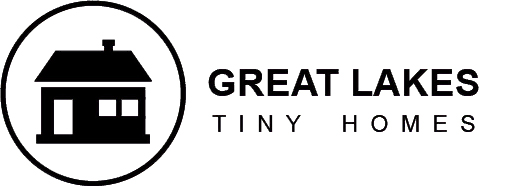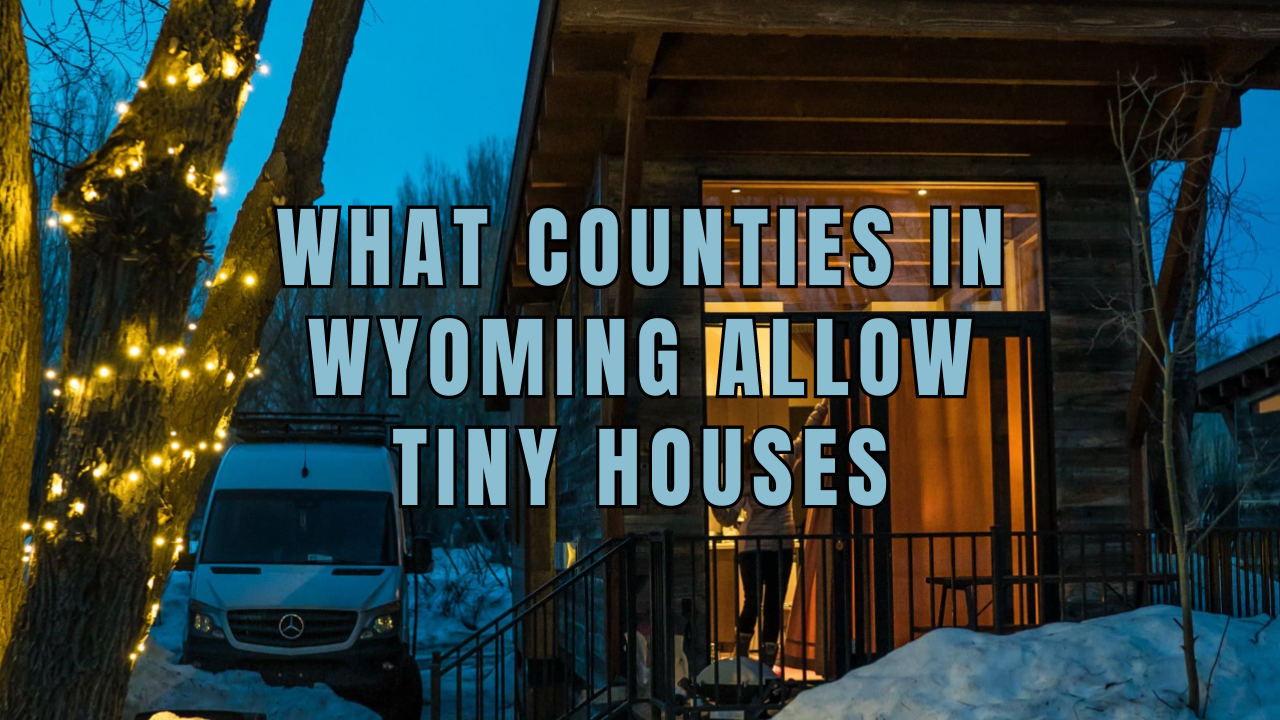The tiny house movement has gained popularity in recent years as more people seek sustainable and affordable tiny home living options. However, before building or parking your tiny home in Michigan, understand the zoning regulations in different counties. Not all counties in Michigan allow tiny houses, and those that do may have specific rules and regulations that you need to consider.
In this article, we will explore which counties in Michigan allow tiny houses and the rules and regulations you need to grasp. Whether you’re looking to build your tiny dream home or park your tiny house on wheels, learn the legalities and zoning requirements that apply.
Tiny House Prices in Michigan
Once you start your tiny house project, you probably want to know about affordable alternatives that fit your small home dreams.
We provide solutions to fit every living style and budget to assist you in moving forward with your living project. Check out all the tiny homes Michigan has for sale.
What Counties in Michigan Allow Tiny Houses?
Wayne County
The city of Detroit, which is the county seat of Wayne County, Michigan, has restrictions on auxiliary residences within its boundaries. It is to reduce the space available to a single person in densely populated places. Your chances of successfully living in a tiny home increase with distance from the city and with moving farther into the county.
Leelanau County
Cleveland Township, in Leelanau County, amended its zoning ordinance rules in August 2018 by incorporating Leelanau’s residential construction laws. This rule makes it simpler to live small in the township by lowering the minimum square footage of a typical residence from the restricted 750 square feet to 480 square feet.
Montmorency County
Montmorency County, located in northern Michigan, has recently updated its small-structure standards to include a new category. This update aims to provide more flexibility to tiny house owners.
The legislators of Briley Township county seat of Montmorency, have defined a new type of residence known as “Economy Efficient Dwelling.”
Tiny House Regulations And Rules In Michigan
When it comes to regulating tiny houses, Michigan keeps leading the way and providing a range of choices for anyone looking to reduce their living area. Michigan’s laws on small homes, whether permanent, temporary, or transitional, are thoroughly covered.
Permanent Structure Rules
In Michigan, all housing structures, including small homes, must comply with the same building codes as any other permanent construction. It means the house must be waterproof, have a solid foundation and proper insulation. Moreover, it must be equipped with wiring for power, sewage, and water.
It’s common to refer to building a tiny home on a foundation as an auxiliary dwelling unit (ADU). Nevertheless, ADUs are not legal in all places. If your tiny home is a dwelling unit, property taxes can apply. Furthermore, Michigan has established the idea of an Economy Efficient Dwelling, a step toward zoning laws that are more accommodating to tiny houses.
Temporary Structure Rules
Tiny homes are built on trailers, making them geographically flexible. They may be classified as recreational vehicles (RVs), which exempts them from permanent structure construction rules. However, weight and height limitations are among the regulations enforced by transportation officials on the route.
In Michigan, an RV is on the property—not occupied—after it was used for 60 days within a calendar year. This restriction draws attention to the transient character of these constructions and the necessity of adhering to local laws.
Transitional Structure Rules
Tiny homes that don’t quite fall into the permanent or temporary categories are known as transitional homes. For instance, a mobile tiny house is used as a temporary residence while a more long-term one is being built. Consider some of the following aspects regarding transitional structures:
- Verify the house’s structural stability. All of the finishing, framing, and foundation should meet code requirements.
- Make the move easier by simplifying the place.
- Before you move into your new place, ensure that the sewage, water, and electricity connections have been set up and are working properly.
- Be ready for any weather. Make sure your house can endure strong winds if it’s in a hurricane-prone area.
In Michigan, Where Can I Build A Tiny House?
Carefully consider the placement of your tiny house. Working with a licensed builder can ensure all necessary paperwork and that the building adheres to all codes.
Although building a tiny house requires a lot of work, it need not be challenging if you plan. Common locations for tiny homes include the following:
- RV parks
- National Parks and campgrounds
- Tiny house communities
- Private properties
Tiny House Communities in Michigan
These communities offer a sense of camaraderie and shared values among residents who are passionate about sustainable living. With a focus on environmentally friendly design and communal spaces, tiny house communities in Michigan provide an opportunity for individuals to downsize and simplify their lives while still enjoying the benefits of community living. From rural settings to urban areas, these communities are popping up all over the state, offering an alternative housing solution for those looking to embrace a smaller footprint.
Michigan Ecovillage
An intergenerational live-work community that promotes purposeful living and environmental concern is in southeast Michigan and is Michigan Ecovillage. Their emphasis is on coexisting holistically.
The Michigan Ecovillage community aims to establish a socially sustainable environment by practicing participatory democracy, adopting fair and inclusive organizational principles, and developing a shared culture.
Cottage Estates
Living in a park model house is one elegant way to live with family. Situated on 150 acres of forests, ponds, and meadows, Cottage Estates is an RV community offering park-style house rentals. A full-service RV hookup, natural paths, a library, a fitness center, a clubhouse, Wi-Fi and cable, laundry facilities, and much more are available to guests staying at the resort.
Other communities to consider are:
Tiny Home Community Near Ann Arbor
Experience the charm of a tiny home community near Ann Arbor, where sustainable living meets modern convenience. Enjoy the sense of community, while still being just a short drive away from the bustling city. With beautifully designed tiny homes and a focus on eco-friendly living, this community offers a unique and fulfilling lifestyle.
Tiny Home Village in Detroit
Tiny Home Village in Detroit is a community of small, sustainable houses designed to provide affordable housing options for low-income individuals. The village provides a sense of community, support, and access to necessary resources, offering a creative solution to the housing crisis in the city.
Tiny Home Community in Grand Rapids
The tiny home community in Grand Rapids offers a unique and sustainable living option for residents. These small, yet thoughtfully designed homes create a close-knit neighborhood feel. Residents can enjoy a simplified lifestyle while still being part of a supportive community. With a focus on minimalism and eco-friendly living, this tiny home community provides an alternative housing solution in the urban setting of Grand Rapids.
Tiny House Builders Near Me
With a range of tiny homes available for international shipping, Great Lakes Tiny Homes makes it possible to choose your ideal home without looking for regional producers.
Furthermore, Great Lakes Tiny Homes is a constructor accredited by the RV Industry Association (RVIA). Fervently committed to maintaining the highest manufacturing standards and the tightest construction, safety, and regulatory requirements for tiny houses.
Do I Need a Certified Builder?
Yes, of course!
When you engage with an RVIA-certified builder, such as Great Lakes Tiny Homes, you can be sure that the tiny house you own is built under all applicable rules and regulations.
It also ensures that the materials in your home are strong, safe, and of the highest quality.
Another advantage of working with a certified builder is that financing and insurance options are more easily accessible. If your tiny house conforms with RVIA rules, it guarantees a safe living place.
FAQs
Can You Make a Tiny House in Michigan Your Main Residence?
It is possible to live long in a tiny home in Michigan.
Nevertheless, abide by local rules and regulations. The best course of action is to contact your local zoning and authorities to determine if your tiny home complies with all relevant rules and regulations, including inspection requirements.
By conducting thorough research and collaborating with certified builders, you can experience the advantages of a simpler and more eco-friendly lifestyle in Michigan.
In Michigan, What Types of Tiny Homes Are Allowed?
The State of Michigan does not have many laws about small houses in general. However, its regulations focus on a specific type of tiny house known as an accessory dwelling unit (ADU). ADUs are mentioned in the cities that allow tiny houses, but they are not legal in all parts of the state.
Several tiny houses allowed in Michigan are accessory dwellings, such as the Economy Efficient housing in Briley Township. It is a brand-new type of small house with unique specifications. Anywhere in Michigan that your tiny home is, it must abide by the appropriate rules and regulations.
Economically Efficient Homes: What Are They?
The requirements for Economy Efficient Dwellings in Briley Township differ from those for ADUs across the state of Michigan. The rules for this kind of dwelling are as follows:
- It has to be between 240 and less than 500 square feet.
- There must be no over 20 feet of side elevation, nor more than 12 feet.
- It needs to be between 20 and 30 feet long.
- The home has to be built on a permanent, pre-approved foundation.
- It is legal to construct buildings in residential, agricultural, and woodland recreation zones.
- You require a certificate of occupancy and abide by Michigan’s building codes.
Conclusion
If you’re considering living in a tiny house in Michigan, it’s essential to understand the local laws that apply. While Michigan is moving towards allowing small dwellings, rules and regulations may vary significantly from one community to another. Ensure you follow all building codes, tax laws, and zoning restrictions to guarantee that living in a tiny house is legal and delightful.





